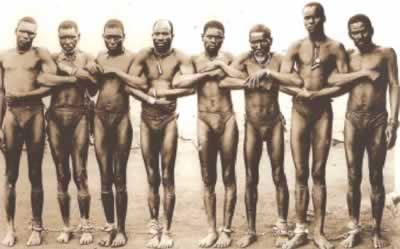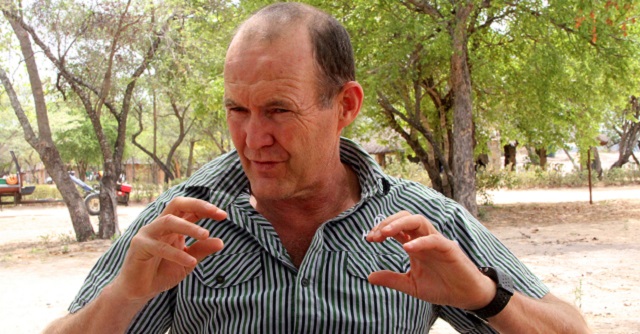
The Sunday News

 Saul Gwakuba Ndlovu
Saul Gwakuba Ndlovu
WHILE Zimbabwe is celebrating its 35th independence anniversary, many people born after the country’s attainment of nationhood do not really understand the socio-economic conditions under which the black people of this country lived during the white settler regime’s administration.
The conditions were meant to keep the African people as drawers of water and hewers of wood for the white settlers for the foreseeable future if not forever.
Shortly after the British South African Chartered Company (BSAC) grabbed this company by military force and trickery in 1893, its administration passed a couple of laws to subdue and control the indigenous people.
Also Visit:
The laws included the Masters and Servants Act, the Native Affairs Act, the Land Apportionment Act, the Industrial Conciliation Act and the Land Husbandry Act.
The Masters and Servants Act was a copy of a law by the same name that had been passed by the Cape Colony’s parliament a few years earlier when Cecil John Rhodes was an MP in that British Colonial possession.
He later became its prime minister and colonised our territory during that period, using his political influence to recruit military personnel to form the Pioneer Column.
The Masters and Servants Act stipulated that a black person could not be called “an employee”, whatever his or her nature or work. The term “employee” was reserved for white workers, and so were normal workers’ rights.
Black workers were treated well — nigh like slaves, especially those in the farming and mining sectors. The law permitted the white employers to flog their black workers for pilfering, desertion, absenteeism, disobedience or for laziness or slovenly done work such as laundry, house-cleaning and cooking.
Some social scientists and Christian missionaries would suggest years later, and even at that very time, that many white settlers in this country and in South Africa, Namibia, Angola, Mozambique and elsewhere had very strong slave-owners’ mentalities.
Slavery had been abolished in British administered territories in 1836, that is about 60 years before Rhodes’ Pioneer Column camped at Fort Salisbury on 12 September 1890, Occupation Day, to later seize Matabeleland in 1893.
The Native Affairs Act was passed in 1928 to control the socio-political behaviour of the country’s indigenous people, hence its name.
One of its clauses made it an offence for an indigenous black person to criticise either a native commissioner or a chief. The fine for such a crime was 100 pounds (sterling) or a year’s imprisonment.
If the accused was not indigenous to this country, the Native Affairs Act called for that person’s immediate deportation.
The author of this article was arrested in early 1964 for criticising the cowardly behaviour of the African chiefs, and was fined one hundred pounds (sterling).
The Land Apportionment Act divided this country into two parts for occupational purposes, one for the white settlers and the other for the black majority.
The white minority settler’s portion was on the healthy, fertile, middle and high velds, and the African people’s part was predominantly on the low veld, a generally infertile, sandy region infested with malarial mosquitoes and the dreaded tsetse fly which carries the terrible sleeping sickness.
Black people were forcefully uprooted from their traditional area of domicile and dumped in the lowveld, locating in the middle of nowhere. The Land Apportionment Act was the Southern Rhodesia version of the Glen Grey Act of the Cape Colony, created by Cecil John Rhodes when he was that colony’s PM as well as Native Affairs Minister in the early 1880s.
The Land Apportionment Act divided this country virtually into two equal parts, one for the whites who numbered about 200 000, and the blacks who were more than three million.
The Industrial Conciliation Act of 1934, another copy of the Cape Colony law by the same name, authorised white workers to form trade unions but not to allow black people to become members.
It also reserved certain types of jobs for the white community, barring black people from jobs such as train driving, fire fighting, even building and carpentry even if the black people were actually trained. The Industrial Conciliation Act was amended in the late 1950s because of black nationalist pressure brought about by Joshua Nkomo’s leadership and the creation of the Federation of Rhodesia and Nyasaland.
At the height of the Southern Rhodesia white minority settler regime, no black person was allowed to be called an artisan, however, qualified he might have been. That was based on a clause of the Industrial Conciliation Act.
The Land Husbandry Act was enacted in 1950 and allowed each tax paying black person not more than eight acres (about three-and-half hectares) of land for tilling purposes.
Incidentally, only male adult Africans paid what was called poll tax — which was one pound (sterling) per head. Every land user was required by the Land Husbandry Act to make contours and ridges in his fields to control rain water.
Meanwhile, the number of cattle each tax payer could lawfully own was eight. That resulted in most black people selling their livestock for very little money.
It is important to remember that the culled cattle were sold to white farmers on whose land thousands roamed. The Land Husbandry Act did not really apply to white farmers, especially as far as livestock was concerned.
The black people in urban areas had to live in only what were officially called “locations”, the most well-known of which were Old Location (Makokoba) in Bulawayo, Fingo Location at Mbembesi, and Harare Location in the then Salisbury.
Black people were paid much less than white workers even if the black worker was much more skilled than the white one. That and other socially discriminatory laws, by-laws and practices comprised what was referred to as “colour-bar”, later called “racial discrimination”.
That practice applied to places of residence, schools, mode of travel (trains, buses) hospitals, churches, restaurants, post offices, sports, marriages and prisons.
These are the oppressive measures that led to a great deal of dissatisfaction among the black people. To change that very unhappy situation, Africans demanded universal adult suffrage (one person, one vote). The white settler regime refused, and the only way to free ourselves was to take up arms.
Saul Gwakuba Ndlovu is a retired, Bulawayo-based journalist. He can be contacted on cell 0734328136 or through email [email protected]



